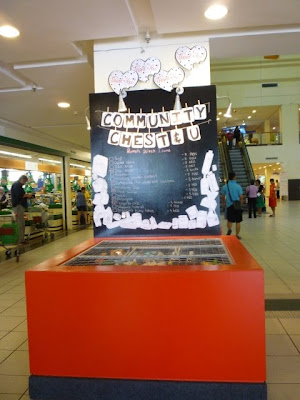
LETTER TO THE EDITOR
CAPPING OF ADDITIONAL SCHOOL FEES A WELCOME PROPOSAL
As volunteers who assist underprivileged families and schoolchildren in Selangor and Kuala Lumpur , we support the National PTA Collaborative Council's call to cap additional school fees at RM25 per primary school pupil and RM50 per secondary school student. (The Star, 28 Dec 2009)
While we also applaud the Education Director-General's call to schools and Parent-Teacher Associations to decide on additional fees based on the student's activities and socio-economic background, we strongly urge the Education Ministry and National PTA Collaborative Council to look into the issue of unnecessary additional fees, which is a burden not only to lower income families, but also to our generous donors who are finding it increasingly expensive to sponsor needy students.
We are of the opinion that the additional fees charged are not entirely for the purpose of improving school infratructure, teaching facilities and services.
Certain schools in Wangsa Maju and Setapak, for instance, are charging students RM20 at the beginning of the school year for the school’s award day and end-of-year party. This sum is exorbitant, as it is on top of the RM30- RM50 charged as PTA contribution. The children we work with are already marginalised and at an academic disadvantage. Awards Day has little context for them, as they are statistically less likely to be the recipients of prizes for good performance. The RM20 fee also raises suspicions of unjust enrichment, as a school with 5,000 students would then have collected RM100,000 for an Awards Day Ceremony attended by approximately 80 teachers and 250 students!
Students are also charged RM6 - RM8 for Moral Studies / Islamic Studies. No reasons are given for this sum being charged, and since these are compulsory subjects, students who are unable to pay the additional fees do not have the option of dropping these subjects.
We are also concerned over several schools' insistence on school socks (averaging RM6) and track bottoms (averaging RM18), which appear to us to be of substandard quality yet unreasonably expensive. We believe that as long as a student is outfitted in the uniform sanctioned by the Ministry of Education, there should be no need for special ‘school socks’ and other accessories.
Among others, some schools also charge students RM10 for the use of the school library and RM10 for the library access card. A simple, inexpensive library card system and the enforcement of the ‘no schoolbags inside the library’ rule would be sufficient to prevent the loss of books. The children who are unable to afford this fee are also the ones least likely to have access to reading materials and a conducive study space at home.
We have written letters to the respective school principals for a waiver of the fees on behalf of these children, but only one school has agreed to waive the fees for one child. Another school turned down our request, while other schools did not bother to respond at all. Not all parents were able to meet up with the school heads themselves, because the parents are either illiterate, unable to communicate fluently in Bahasa Malaysia or English, ill, victims of domestic violence or more commonly, working at jobs that do not allow them to take leave.
We therefore strongly urge the Education Ministry to cap additional school fees, both in the interests of protecting the welfare of low-income families and of curbing corruption.
We also wish to appeal to the Ministry of Federal Territories and Urban Well-Being to work with schools to identify students whose parents earn below RM2,500 a month and to provide aid in the form of free tuition classes, subsidised transportation, canteen food aid schemes, school uniforms, workbooks and payment of school fees. This would be a more realistic urban poverty eradication strategy than merely disbursing monthly financial aid to individuals and groups who have registered themselves with the Social Welfare Department. Many of the hardcore poor are hindered by illiteracy and the inability to get assistance with bureaucratic processes, and are therefore not receiving aid. At the very least, the Ministry can assist their children by providing all opportunities and resources necessary to enable them to perform academically and thus break the cycle of poverty.
BERNADETTE CHIN & WONG EE LYNN
KUALA LUMPUR


































